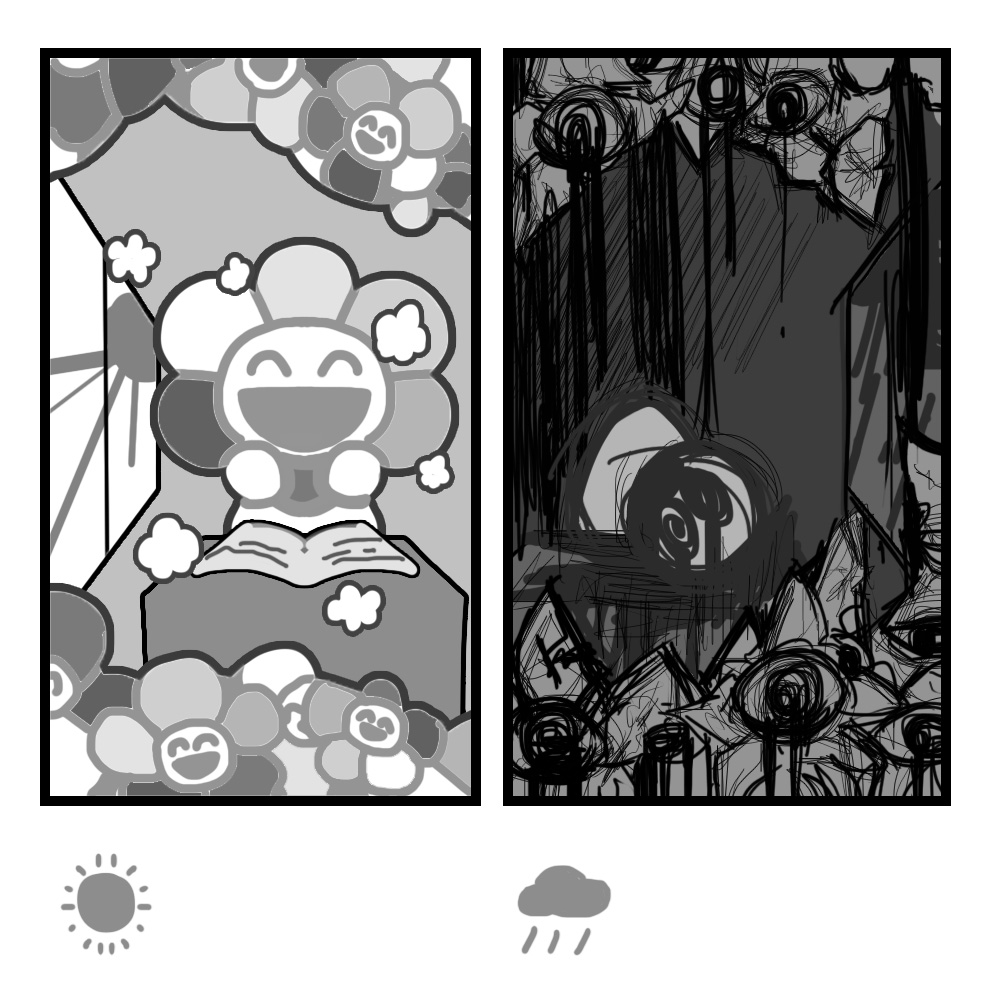

Many find the sunlight pleasant. A study published in the Journal of Affective Disorders shows that the increase in sunlight that comes with changing seasons can reduce mental distress. However, as winter nears, the sun doesn’t shine as often. The dark and monotonous winter days also result in mood changes, causing shifts in motivation and attitude.
“When it’s cloudy, I feel this overwhelming sense of apathy [and] nothingness,” said sophomore Thomas Williams.
During a dark afternoon, or early evening, some may find fewer exciting activities to participate in. Additionally, for some, the rain can cause many inconveniences.
“It can result in the cancellation of baseball,” said sophomore Robert Kelley. “You have to miss out on some practices and games or have muddy practices, which are … not fun.”
According to the Centers for Disease Control and Prevention, the light cycle of the sun has a powerful effect on one’s circadian rhythm, or internal clock. The circadian rhythm regulates one’s sleeping and waking processes. A darker environment during the day sends a signal to the brain that can cause one to feel sleepy, thus limiting an individual even during daytime.
“I always find myself drifting off and not paying attention”
“I find it hard to pay attention during school because it’s so gloomy,” Kelley said. “I always find myself drifting off and not paying attention to teachers.”
However, not all are affected negatively by the darkness and rain that come with cloudier days.
“I can actually gain motivation when it’s cold,” said sophomore Charles Birkelund. “Everything else seems worse, so why not do homework?”
Some even feel positively toward the rain.
“I actually had a handful of people come up and be really happy that it was raining,” said AP Psychology teacher Jessica Frankel. “[The rain] put them in a good mood.”
Although the clouds have an effect on people’s motivations, there are some ways to combat the negative emotions that may arise with seasonal changes.
“Most of the sadness or mood changes that happen are because of a lack of light or lack of going outside,” said AP Psychology teacher Carlo Corti. “Adding light to your life, even fake light, is really helpful.”
A study published in the Proceedings of the National Academy of Sciences states that a mood-regulating pathway is linked to cells that are activated when exposed to light. Once the pathway is activated, it sends a signal to the brain that improves one’s mood, reflexes and cognitive processing.
Along with making physical changes in one’s surroundings, simply acknowledging seasonal depression can also aid those who may be struggling with their mood on darker days.
“I make sure that I talk about major depressive disorder and depression,” Frankel said. “Being able to be more self-aware and reflect on yourself is the best way to … deter [seasonal depression].”
Some students have their own ways to deal with shifting moods.
“It’s important especially at our age that we try to disconnect the weather from our mood,” Williams said. “Having days where you feel like you can’t do anything because it’s cloudy [can be] a bad mindset to be in.”
Regardless of how strongly one is affected by the look of the weather, it is a constant factor in one’s day-to-day routines.




